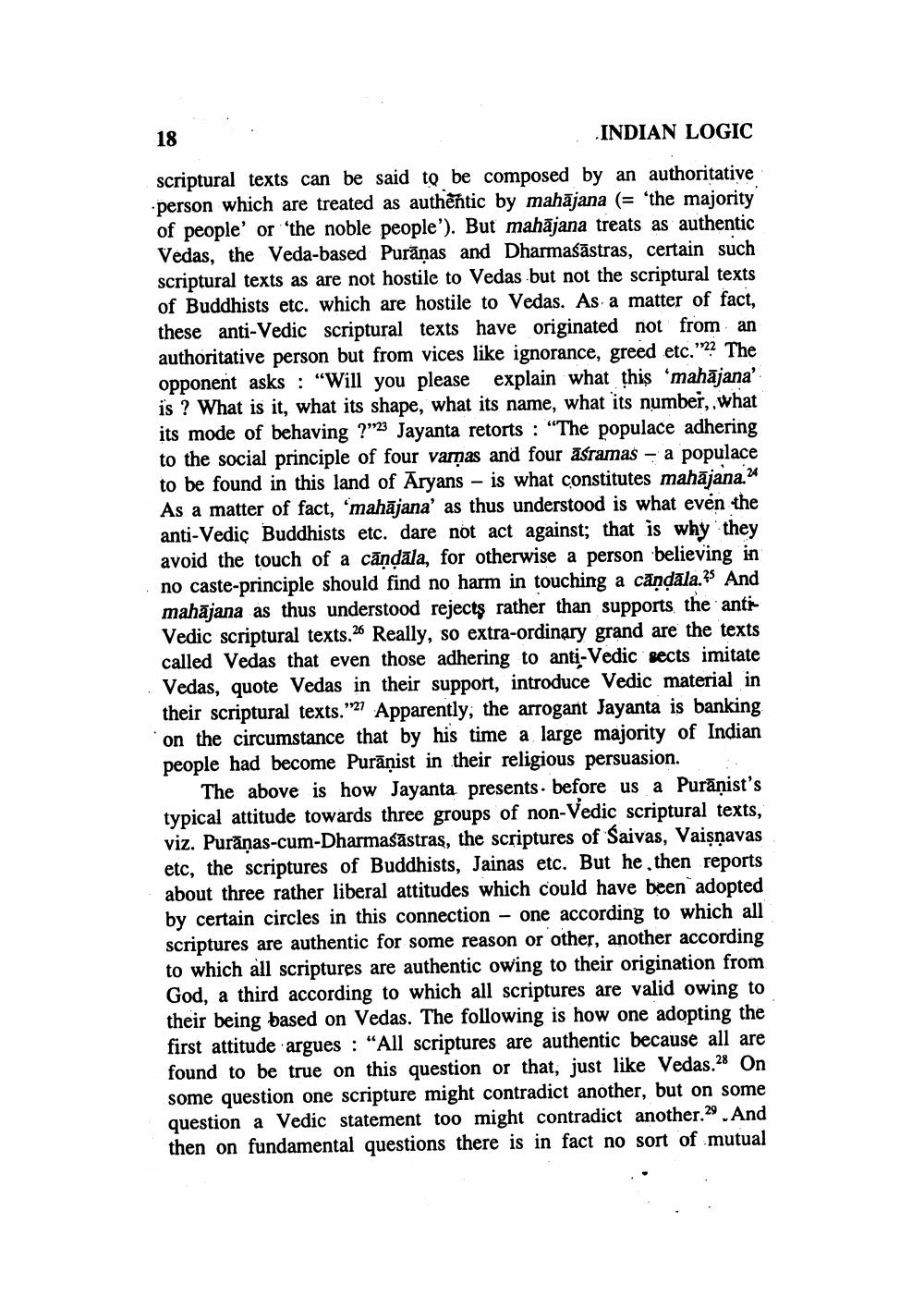________________
18
INDIAN LOGIC
scriptural texts can be said to be composed by an authoritative person which are treated as authentic by mahājana (= 'the majority of people' or 'the noble people'). But mahājana treats as authentic Vedas, the Veda-based Purānas and Dharmaśāstras, certain such scriptural texts as are not hostile to Vedas but not the scriptural texts of Buddhists etc. which are hostile to Vedas. As a matter of fact, these anti-Vedic scriptural texts have originated not from an authoritative person but from vices like ignorance, greed etc."?? The opponent asks : “Will you please explain what this ‘mahājana' is ? What is it, what its shape, what its name, what its number, what its mode of behaving ?"23 Jayanta retorts : "The populace adhering to the social principle of four varnas and four asramas - a populace to be found in this land of Aryans - is what constitutes mahājana. 24 As a matter of fact, ‘mahājana' as thus understood is what even the anti-Vedic Buddhists etc. dare not act against; that is why they avoid the touch of a cāndāla, for otherwise a person believing in no caste-principle should find no harm in touching a cāndala.And mahājana as thus understood rejects rather than supports the antiVedic scriptural texts.26 Really, so extra-ordinary grand are the texts called Vedas that even those adhering to anti-Vedic sects imitate Vedas, quote Vedas in their support, introduce Vedic material in their scriptural texts. "27 Apparently, the arrogant Jayanta is banking on the circumstance that by his time a large majority of Indian people had become Purāņist in their religious persuasion.
The above is how Jayanta presents before us a Purāņist's typical attitude towards three groups of non-Vedic scriptural texts, viz. Purānas-cum-Dharmasāstras, the scriptures of Saivas, Vaisnavas etc, the scriptures of Buddhists, Jainas etc. But he then reports about three rather liberal attitudes which could have been adopted by certain circles in this connection - one according to which all scriptures are authentic for some reason or other, another according to which all scriptures are authentic owing to their origination from God, a third according to which all scriptures are valid owing to their being based on Vedas. The following is how one adopting the first attitude argues : "All scriptures are authentic because all are found to be true on this question or that, just like Vedas.28 On some question one scripture might contradict another, but on some question a Vedic statement too might contradict another.29 And then on fundamental questions there is in fact no sort of mutual




